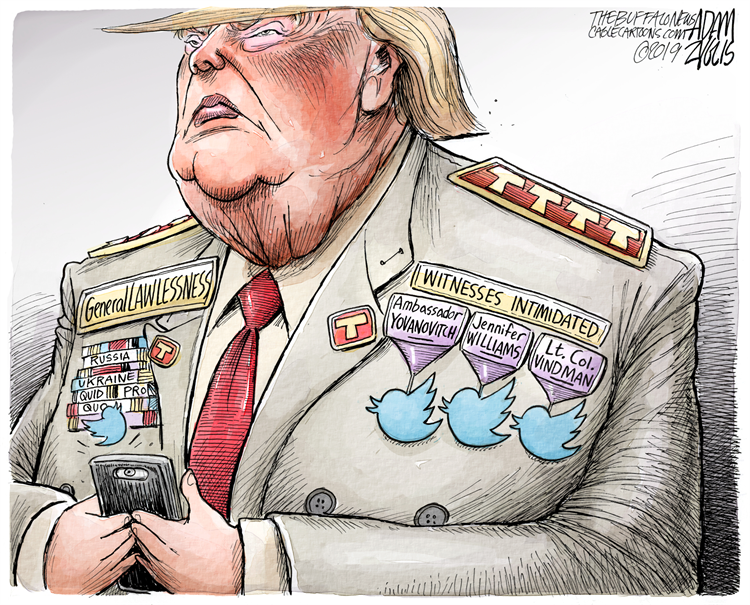
Trump, as the commander in chief, of course has the power to interfere and manipulate the military justice system, as he has done time and time again and has more aggressively and unabashedly done in trying to dictate “special treatment for Navy SEAL Edward Gallagher,” the Navy Seal accused of committing war crimes during a 2017 deployment in Iraq.
Gallagher was eventually acquitted of murder but convicted in July of a lesser crime: posing for a “trophy” photo with the corpse of an Islamic State prisoner.
After that conviction, the U.S. Navy was about to decide whether Gallagher should keep his almost sacred Trident SEAL pin.
Trump continued to interfere, trying to dictate special treatment for the Navy SEAL. This time, however, Secretary Richard V. Spencer stood up for the Navy, its discipline and its traditions and, yes, its independence.
As a result, and because of Trump’s power, Spencer was fired.
In a letter to Trump, acknowledging his termination, Spencer writes:
As Secretary of the Navy, one of the most important responsibilities I have to our people is to maintain good order and discipline throughout the ranks. I regard this as deadly serious business…The rule of law is what sets us apart from our adversaries. Good order and discipline is what enabled our victory against foreign tyranny time and time again…Unfortunately, it has become apparent that in this respect I no longer share the same understanding with the Commander in Chief…I cannot in good conscience obey an order that I believe violates the sacred oath I took …to support and defend the Constitution of the United States.
David Ignatius at the Washington Post writes this morning:”…the Gallagher case illustrates how an irascible, vengeful commander in chief is ready to override traditional limits to aid political allies in foreign policy, law enforcement and now military matters.”
Yes, Trump has the power, but does he use that power judiciously and in the interests of the United States, Americans and our national security?
It has become abundantly clear during the recent impeachment hearings that such is not the case.
Reams of paper and hours of radio and TV broadcast have been used to document such, but none perhaps as powerfully as a New York Times Op-Ed by Bret Stephens.
Stephens believes Trump is attempting to turn the United States “into Ukraine” and he provides four examples or themes” to bolster his claim.
The fourth theme is “covert Russian interference, usually facilitated by local actors.”
After describing how this took place in Ukraine, Stephens brings us back home where “the person who is both the principal consumer and purveyor of those falsehoods is the president of the United States, just as he has been a purveyor of so many other conspiracy theories. Even now, this should astound us.”
He continues:
It doesn’t, because we’ve been living in a country undergoing its own dismal process of Ukrainianization: of treating fictions as facts; and propaganda as journalism; and political opponents as criminals; and political offices as business ventures; and personal relatives as diplomatic representatives; and legal fixers as shadow cabinet members; and extortion as foreign policy; and toadyism as patriotism; and fellow citizens as “human scum”; and mortal enemies as long-lost friends — and then acting as if all this is perfectly normal. This is more than a high crime. It’s a clear and present danger to our security, institutions, and moral hygiene.
Stephens concludes:
It’s to the immense credit of ordinary Ukrainians that, in fighting Russian aggression in the field and fighting for better governance in Kyiv, they have shown themselves worthy of the world’s support. And it’s to the enduring shame of the Republican Party that they have been willing to debase our political standards to the old Ukrainian level just when Ukrainians are trying to rise to our former level.
Please read Stephen’s entire Op-Ed here and, as always, “you decide.”
















